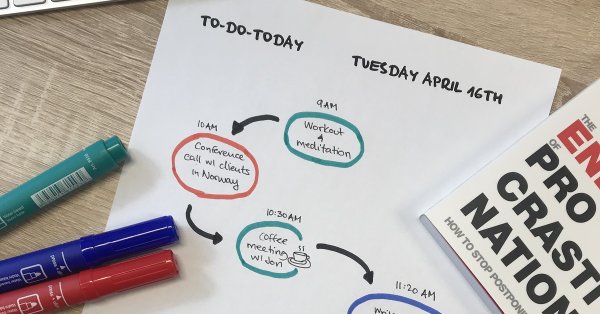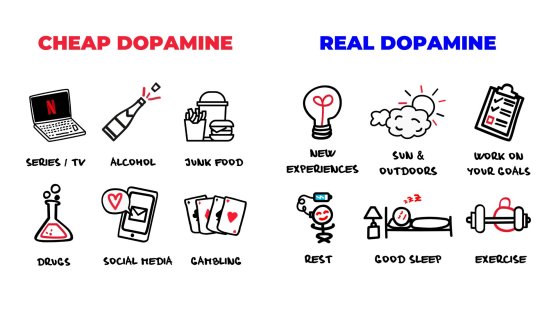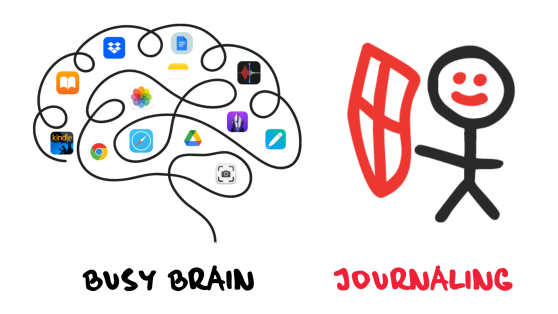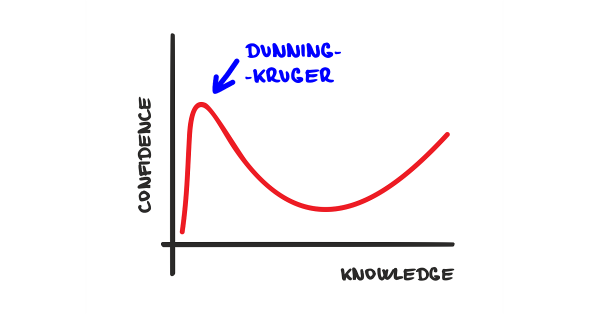Blog article
10 Ways To Strengthen Your Willpower
Posted by Petr LudwigResearch shows that our willpower can be strengthened in the long term. In turn, with stronger willpower, we can focus on our priorities and do essential things first. We can postpone less, be more efficient, and resist temptations better.
Research shows that our willpower can be strengthened in the long term.[1] In turn, with stronger willpower, we can focus on our priorities and do essential things first. We can postpone less, be more efficient, and resist temptations better.
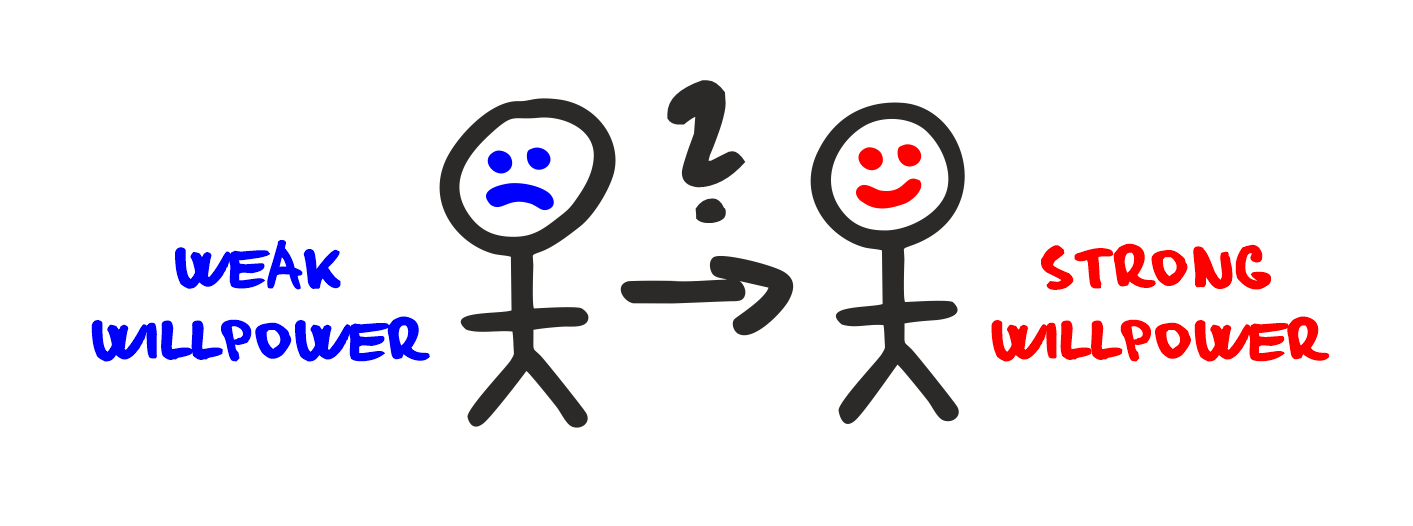
People with greater willpower have more successful relationships, better work results, are healthier, and even live longer.[2] And who wouldn’t want that?
Stronger willpower also leads to greater satisfaction because when we manage to prioritize better, the centers of rewards in our brains are activated, dopamine is released, and we experience positive emotions.[3] On the other hand, postponing tasks, also known as procrastination, leads to dissatisfaction, stress, and remorse. How did you feel when you last pushed off something important? And how did you feel when you spent the day living meaningfully and to your full potential?
So, now that we know willpower is not innate and why it is good to improve your willpower, how can we do it? The following tips will help you strengthen your abilities.
1. Get balanced and regular sleep
Your willpower during the day depends on the quality of your sleep at night - 7 to 8 hours of sleep is best. Less time is bad and more time is as well. Regularity is also vital. Fall asleep and wake up at the same time. Just one bad night and the part of the brain responsible for willpower is literally disconnected.[4]
2. Don't snooze
Many people postpone their alarm in the morning. Sadly, studies show that every time we postpone our alarms, we feel worse. The brain begins to prepare for sleep again only to be torn out of it again a few minutes later. That literally destroys us.[5] Snoozing greatly degrades our morning energy and significantly weakens our willpower. Start your day with a win instead. Get up on the first alarm ring.
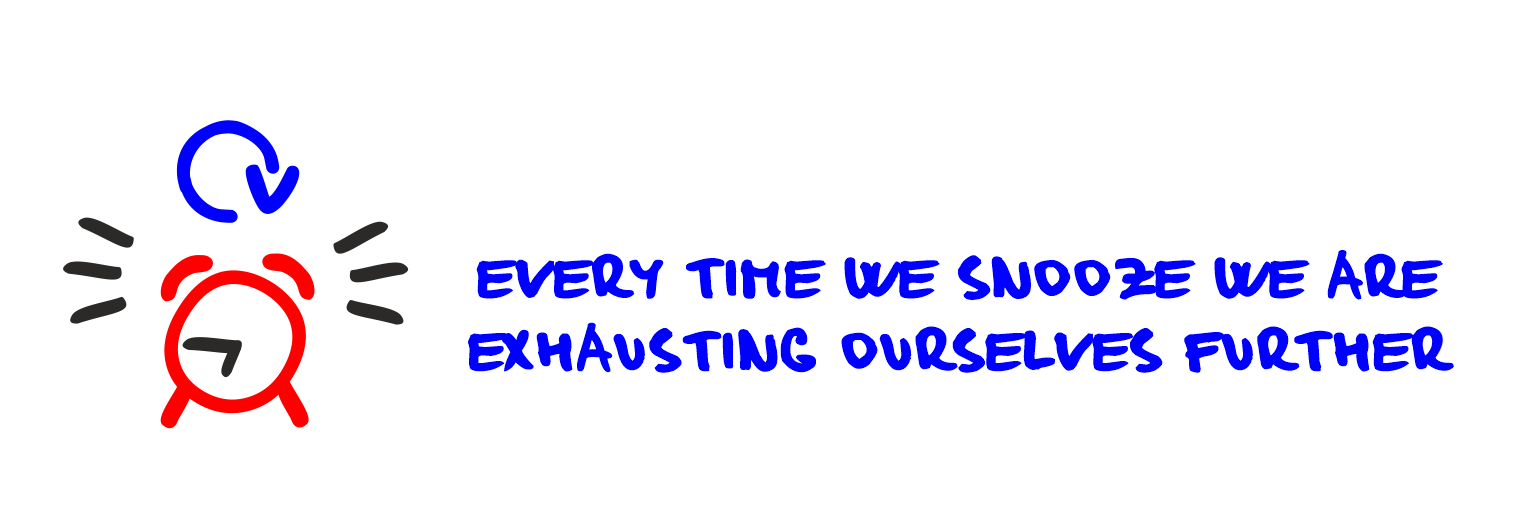
3. Have a morning warm-up
Brain activities and willpower also benefit when the cardiovascular system is kicked-up in the morning. A minimalist morning warm-up can do wonders. An extensive 2010 meta-analysis showed that several shorter daytime exercises are significantly more effective than one long block.[6] So start with just 5 minutes. That is enough. Stretching, 20 pushups, 10 squats, …
4. Have a cold shower
You can start with warm water and then lower the temperature at the end of the shower. Day after day, add a little more time or decrease the temperature. Cold water activates the sympathetic nervous system, increases blood pressure and noradrenaline. For body and brain that’s a beneficial mix. It also turns out that a cold shower in the morning can act as an antidepressant.[7]
5. Use the "first thing in the morning" method
When you come to work, start with the most important task of the day first. Even before you check your emails or start checking social networks and news (yes, we know you're doing it).
When you accomplish your first challenge, the other tasks don’t seem so unpleasant. Dopamine, which relaxes us after the completion of tasks, is released in the brain, increasing our creativity, satisfaction, and giving us courage, which can be useful for other tasks during the day.
6. Be in the flow as much as possible
If you can immerse yourself in an activity which you see as having meaning and which engages your skills, the activity will engulf you. You will stop noticing the time and get into a state of flow. While in flow, our willpower is draining considerably less energy than when we are not in it. We are more satisfied in the long term, more creative, and the brain works better when it comes to memory and learning.[8] So find a flow-mix. A mix of activities that bring you into the state of flow.
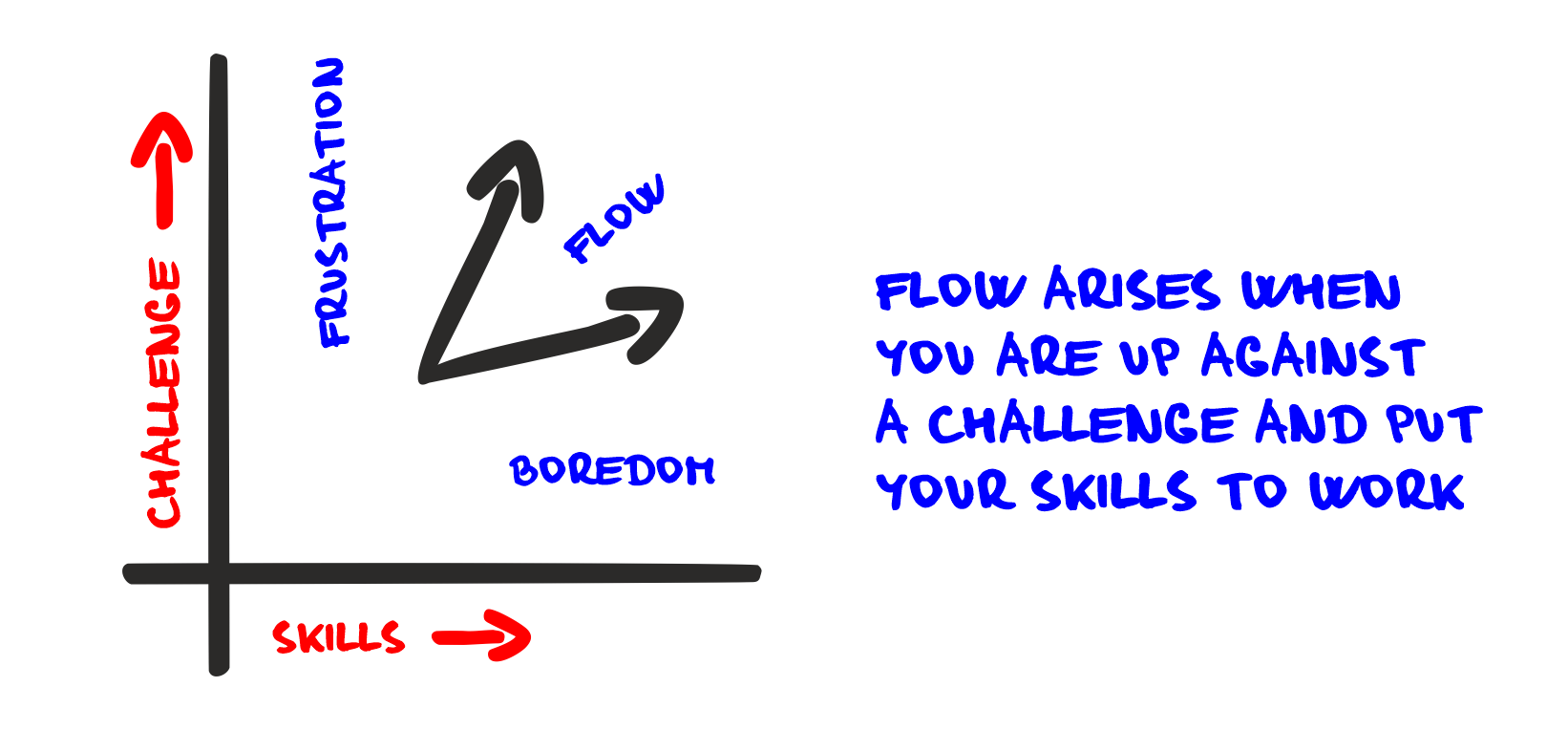
7. Restart your willpower during the day
Just like muscles, willpower tires during the day.[9] But studies show that it can be restored. Try just a short, 5-minute long walk (without a cellphone, of course). The second way to reboot is to restore nutrients. Especially simple sugars from fruits. A glass of fresh juice can help you to kick up your energy within a few minutes. Work for an hour, then go for a walk, work for an hour, then have a fruit, work for an hour and so on. Constant enhancement of willpower makes productivity beneficial. With sufficient willpower, a person sometimes has more energy in the evening than in the morning.
8. Strengthen the willpower with sport
People have one willpower for all activities. We can train it in sports, and then use it at work too. Find some habit that you will regularly practice. Just walk for 15 minutes. Every time we build on that our willpower grows stronger.
9. Do small steps
Big changes like New Year’s resolutions often don't last in life. Only people with very strong willpower can do it this way. For people with weak willpower, small steps lead to significant changes. Japanese samurai called this method kaizen. In our work, the highest mountains can be climbed with small steps and often they are the only way to reach the summit. When we overcome small obstacles and then repeat it, cumulative positive emotions are created. And that's what makes us start loving what we do and, indeed, inspires us to repeat the steps.
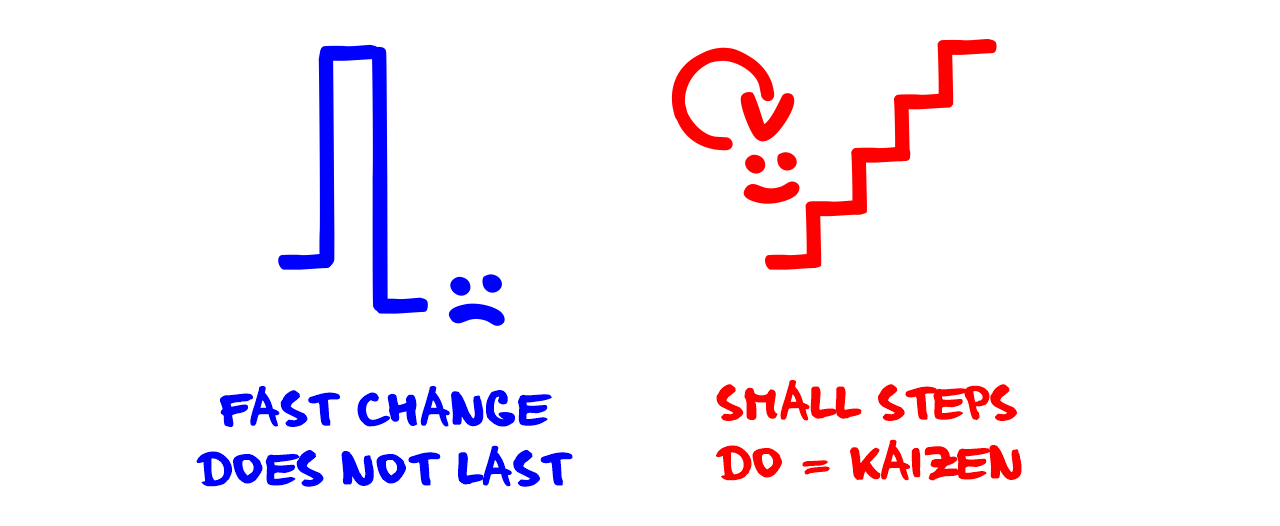
10. Keep a "Habit-list"
How can you put the first 9 points into practice? The biggest obstacle to applying new habits is that we simply forget about them. For this reason, it is handy to create a simple spreadsheet, a so-called "Habit-list", which reminds you of your essential habits every day.
Filling this list only takes two minutes a day, but doing it, helps foster long-term sustainable change. Start, again, with small steps. If you perform the habit, mark it with a smile. If you can handle the Habit-list, you have won. If you sometimes forget about your Habit-list or don't make the habit, don't worry. Forgive yourself, make a thick line, and start again as soon as possible.
Keep in mind that a successful person is not the one who does not fall, but one who can get up as quickly as possible.
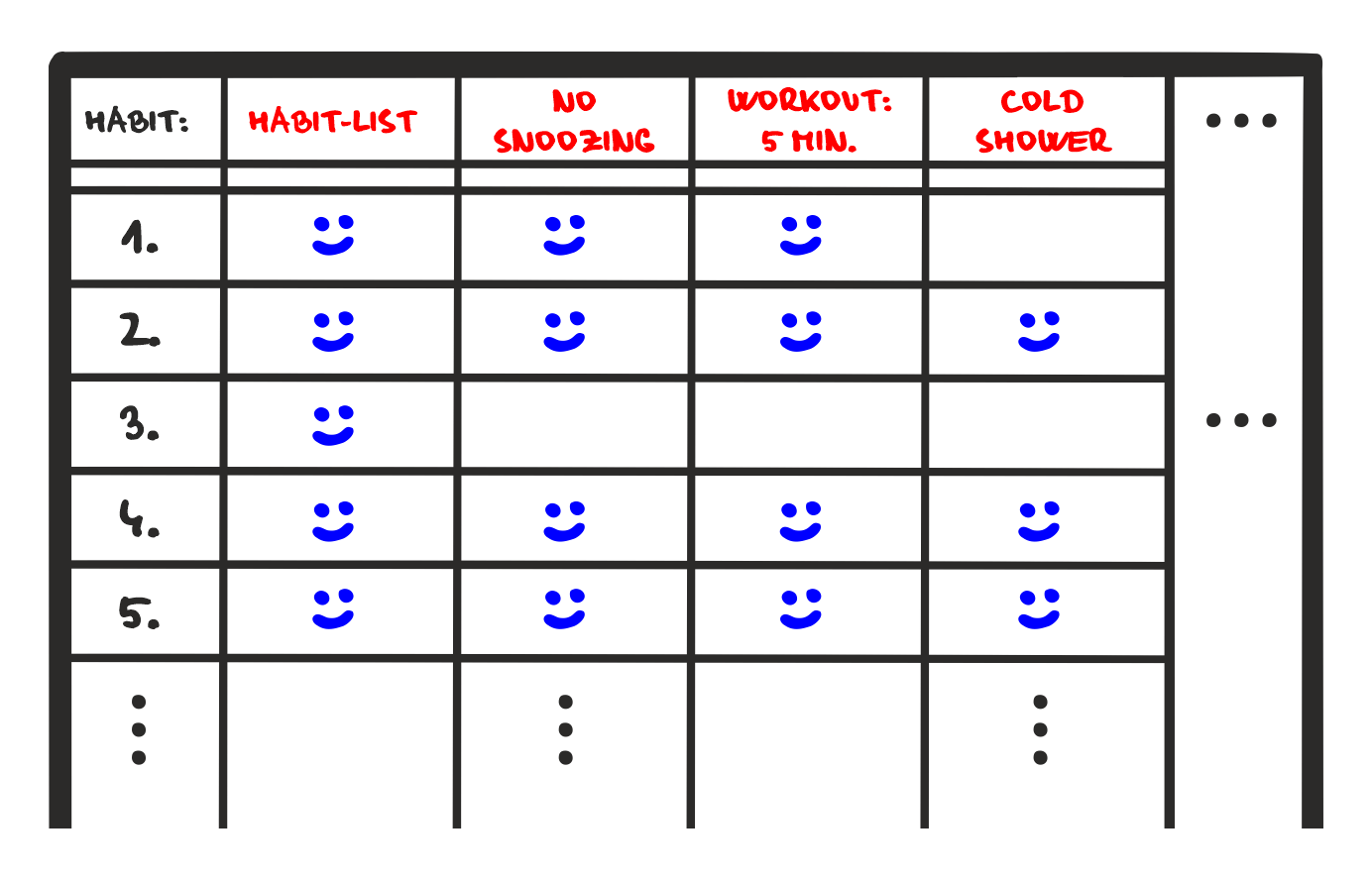
Download A Copy Of Our Essential Habit-List Template
VIDEO: Habit-list - a key tool for long-term habit maintenance.
This video is part of an online course. If you want to learn more about how to beat procrastination and be more efficient, check it out.
Additional sources
- [1] Muraven, M., Baumeister, R. F., & Tice, D. M. (1999). Longitudinal improvement of self-regulation through practice: Building self-control strength through repeated exercise. The Journal of social psychology, 139(4), 446-457.
- [2] Tangney, J. P., Baumeister, R. F., & Boone, A. L. (2004). High self‐control predicts good adjustment, less pathology, better grades, and interpersonal success. Journal of personality, 72(2), 271-324. Kern, M. L., & Friedman, H. S. (2008). Do conscientious individuals live longer? A quantitative review. Health Psychology, 27(5), 505.
- [3] Berridge, K. C., & Kringelbach, M. L. (2008). Affective neuroscience of pleasure: reward in humans and animals. Psychopharmacology, 199(3), 457-480.
- [4] Killgore, W. D., Kahn-Greene, E. T., Lipizzi, E. L., Newman, R. A., Kamimori, G. H., & Balkin, T. J. (2008). Sleep deprivation reduces perceived emotional intelligence and constructive thinking skills. Sleep medicine, 9(5), 517-526.
- [5] Jewett, M. E., Wyatt, J. K., RITZ‐DE CECCO, A. N. G. E. L. A., Khalsa, S. B., DIJK, D. J., & Czeisler, C. A. (1999). Time course of sleep inertia dissipation in human performance and alertness. Journal of sleep research, 8(1), 1-8.
- [6] Barton, J., & Pretty, J. (2010). What is the best dose of nature and green exercise for improving mental health? A multi-study analysis. Environmental science & technology, 44(10), 3947-3955.
- [7] Shevchuk, N. A. (2008). Adapted cold shower as a potential treatment for depression. Medical hypotheses, 70(5), 995-1001.
- [8] Csikszentmihalyi, M., & Csikszentmihalyi, I. S. (Eds.). (1992). Optimal experience: Psychological studies of flow in consciousness. Cambridge University Press.
- [9] Muraven, M., & Baumeister, R. F. (2000). Self-regulation and depletion of limited resources: Does self-control resemble a muscle?. Psychological bulletin, 126(2), 247.
